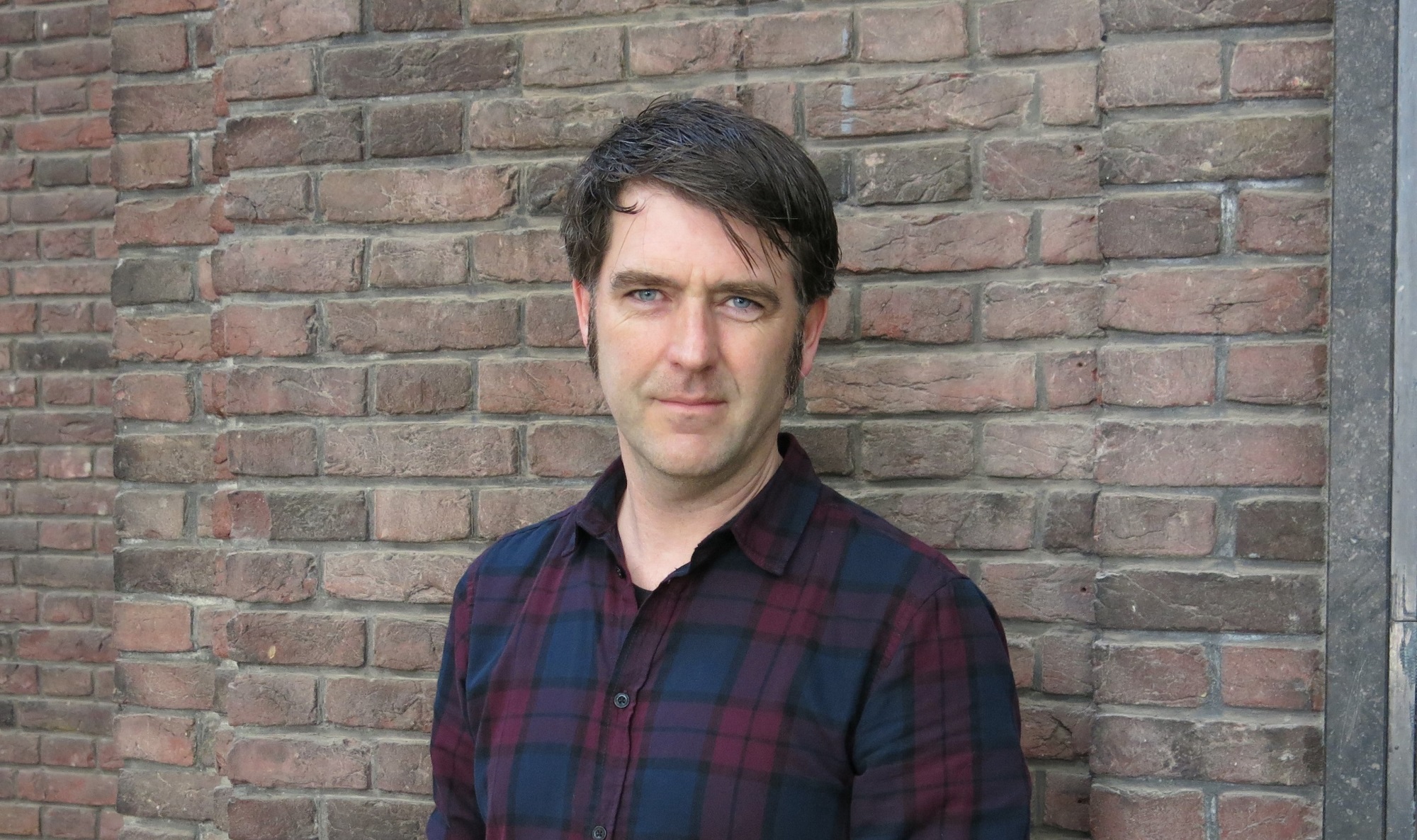How can games and classical music be used to make people think about a sustainable society? Assistant Professor Rens Kortmann will tell you.
Rens Kortmann: “Our role in the project is to design and evaluate persuasive games that try to influence attitudes and behaviour.” (Photo: Heather Montague)
“I’ve been here at TU Delft since 2009 as an Assistant Professor at the Faculty of Technology, Policy & Management. I’ve been working on games and simulations to help people understand complex problems.
We have a project funded by NWO called GAMPSISS (Gameful Music Performances for Smart, Inclusive, and Sustainable Societies). The idea is to look at how classical music and games may reinforce each other. That might mean finding a new way to stage classical music with games that augment the orchestra playing the music.
But the other thing that’s interesting is looking at how working with creative people like musicians and composers can add to designing games that aim for more than entertainment alone.
‘It’s about listening with the head, the heart and the entire body’
The first part of the project was gamification of a classical music concert and we did that last year. We built an app that teaches people that are new to classical music different ways to listen to classical music. It’s about listening with the head, the heart and the entire body. We put games and exercises into the app in order to explore these three worlds of listening. We invited people to play the game and then come to a real classical music concert in Rotterdam or Amsterdam.
We had over 150 people participate who were new to classical music and then we had a control group of another 150 people who already had a background in classical music. We’re currently writing a paper about how the game influenced their attitudes towards classical music and their listening skills.
This year we’re staging a full ‘gameful’ performance with The South Netherlands Philharmonic and other partners. The production, Luistermutant 2020 by Micha Hamel and Arlon Luijten, will be at the Holland Festival in Amsterdam on 21 June. The show aims to make the audience think about the importance of active listening for a sustainable, resilient society. It does so through theatrical performance, live classical music, and the audience playing ‘listening games’. We will also test the audience for how well they can listen to other people.
Our role in the project is to design and evaluate persuasive games that try to influence attitudes and behaviour. It’s like campaigns that urge people to stop smoking, for instance. There are many examples of games in the health domain that try and persuade people towards healthy lifestyles. We are using this type of game to make people think about what is needed for a more sustainable society and their role in that.”
- For more information and tickets visit the Holland Festival website . Note: the show will be performed in Dutch.
Who are the people who work and study on campus? We meet them in Humans of TU Delft.
Do you want to be featured in this series? Or do you know someone with a good story to tell? Send us an e-mail at humansoftudelft@gmail.com
Heather Montague / Freelance writer



Comments are closed.